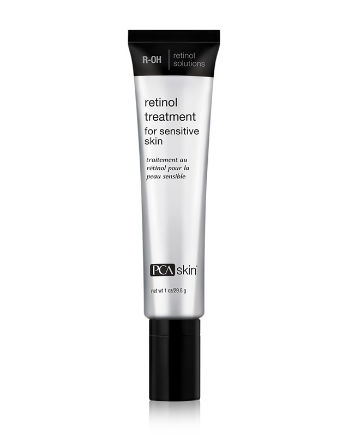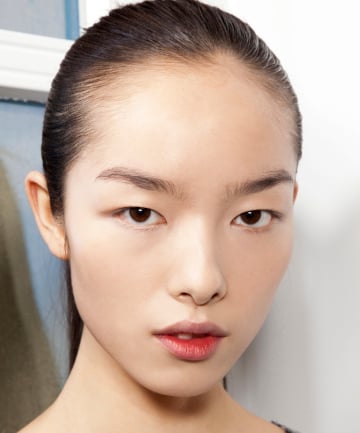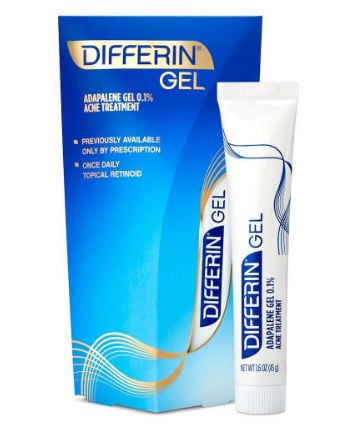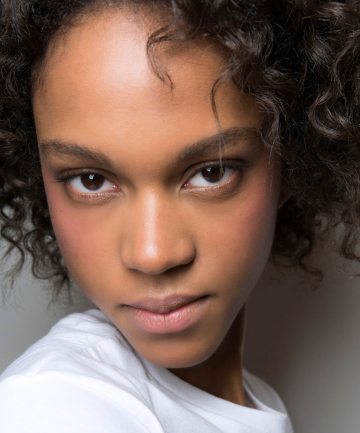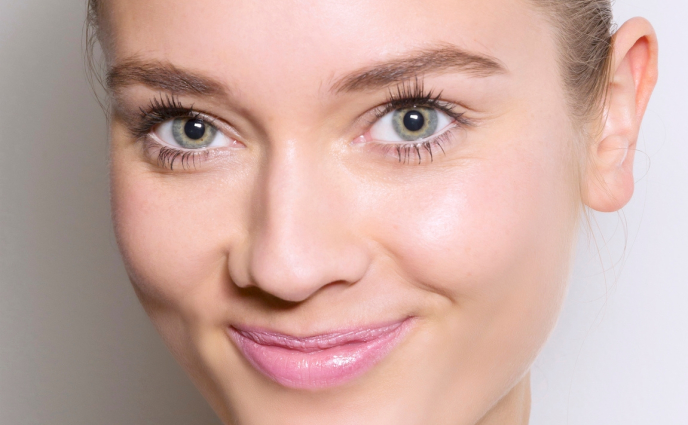Due to its perception as a "harsh" ingredient, lots of people with sensitive skin assume that they can't use retinol. Happily, that's not the case, according to Dr. Rachel Nazarian, dermatologist at Schweiger Dermatology Group in New York City. "People with sensitive skin can incorporate a retinol into their regimen, but should start off more cautiously, mixing a little bit with their moisturizer and applying it twice weekly," she says. "Even at a modified schedule, consistent use of your retinol will lead to great results!"
That said, if your skin is reacting strongly to retinol use, try to cut back on how often you apply your product. If the irritation persists, seek the advice of your dermatologist, as he or she may be able to prescribe or suggest a different product. It's also worth noting that there are even some retinol products that are specially formulated for sensitive skin, such as PCA Skin Retinol Treatment for Sensitive Skin, $109.
Buy now
That said, if your skin is reacting strongly to retinol use, try to cut back on how often you apply your product. If the irritation persists, seek the advice of your dermatologist, as he or she may be able to prescribe or suggest a different product. It's also worth noting that there are even some retinol products that are specially formulated for sensitive skin, such as PCA Skin Retinol Treatment for Sensitive Skin, $109.
Buy now
While, theoretically, this is true, in order to yield continuous results, you should maintain steady retinol usage. You can't, for example, use retinol for a few months and then stop once the beneficial effects are realized — this will leave you in the same place you started months down the line. "Collagen production and other skin improvements are seen as soon as a few months after usage, but continue to improve," says Dr. Lain. "Stopping prematurely allows the aging process and sun damage to quickly reverse these benefits."
Image via Imaxtree
Image via Imaxtree
Each skin care brand has a specific formulation that can combine other ingredients like antioxidants or emollients to make the retinol better tolerated. "It is very personal which brand of retinol feels best on your skin and you can tolerate the best," explains Dr. Gerstner. "There are different percentages of retinol in products too, so pay attention to the labels so you know how much you're using."
The percentage is usually listed on the product label. While some manufacturers consider this proprietary information, most will list it on the product. "Lower-strength retinols can range from 0.01% to 0.1%. Higher-strength retinols contain 0.5% to 1% retinol," explains Dr. Joel Schlessinger, board-certified dermatologist and RealSelf advisor. While many people want to start with the highest strength available, he says that it's actually better to start with a lower percentage, especially if you have sensitive skin or if it's your first time using a retinol product. Brands like The Ordinary actually offer retinol products at many different concentrations, starting off with their gentlest formula, The Ordinary Granactive Retinoid 2% in Squalane, $10.
Buy now
The percentage is usually listed on the product label. While some manufacturers consider this proprietary information, most will list it on the product. "Lower-strength retinols can range from 0.01% to 0.1%. Higher-strength retinols contain 0.5% to 1% retinol," explains Dr. Joel Schlessinger, board-certified dermatologist and RealSelf advisor. While many people want to start with the highest strength available, he says that it's actually better to start with a lower percentage, especially if you have sensitive skin or if it's your first time using a retinol product. Brands like The Ordinary actually offer retinol products at many different concentrations, starting off with their gentlest formula, The Ordinary Granactive Retinoid 2% in Squalane, $10.
Buy now
This was true until recently, but now that prescription-strength retinol is available over-the-counter, you can find products that are equally effective. "Adapalene, which up until last year required a prescription, is the active ingredient in certain over-the-counter brands, and can be used to treat acne and acts as an anti-aging product," says Dr. Nazarian. Differin Gel Adapalene Gel 0.1% Acne Treatment, $11.19, is one such product that's easily available (and pretty darn effective to boot).
Buy now
Buy now
"This myth probably came about from advertising campaigns showing older women using retinols for their aging skin, but the reality is that retinol can be used in teenagers, young adults and people of all ages," says Dr. Nazarian. "It helps dissolve blackheads, fights the formation of pimples and softens signs of aging." Given its many positive attributes, you may just want to consider making retinol a central player in your skin care routine (unless you're pregnant or breastfeeding, of course).
Image via Imaxtree
Image via Imaxtree


